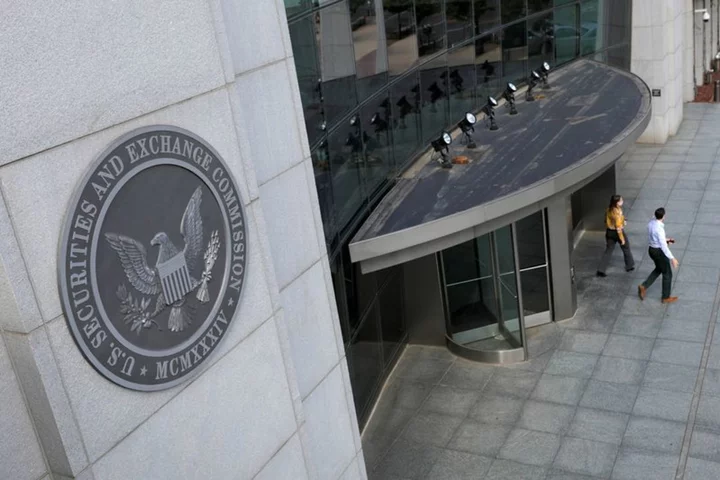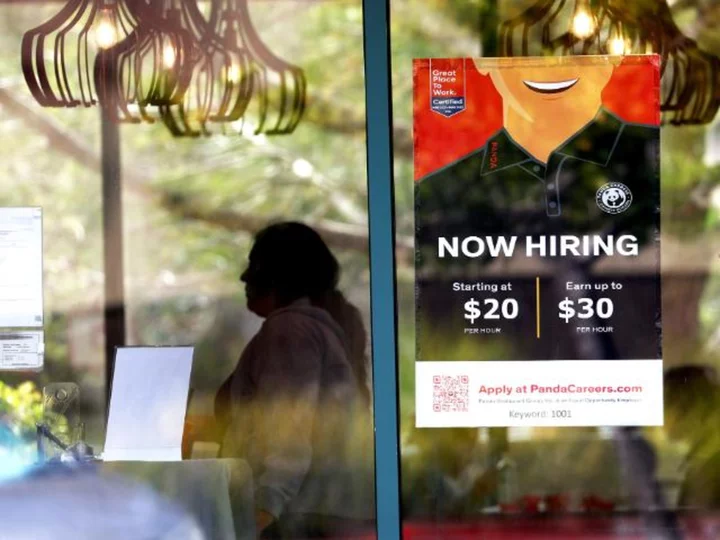The Supreme Court's landmark decision shooting down affirmative action could hurt the college-to-career pipeline many companies lean on to diversify their ranks.
The high court's ruling Thursday that colleges can no longer consider race as an express factor in granting admission could effectively "block career options for young people of color," said Cara McClellan, a professor at The University of Pennsylvania Carey Law School.
While many corporations emphasized diversity in the wake of high-profile killings of Black Americans in recent years, those efforts have often failed to yield significant results, with the top ranks of the Fortune 500 still overwhelmingly White. The Supreme Court's Thursday ruling could make it even harder for those efforts to bear fruit.
The ruling could limit underrepresented racial groups in many industries' hiring pools, according to McClellan, who is also founding director of the Advocacy for Racial and Civil Justice Clinic.
More than 60 companies, including Apple, Google, Starbucks and Procter & Gamble, backed upholding affirmative action in colleges and universities and raised concerns that a lack of diversity in colleges could hurt efforts to diversify the workplace.
Some professional associations, including the American Medical Association, also backed affirmative action. The AMA told the court that "diversity in the education of the Nation's physicians and other healthcare professionals is a medical imperative."
According to the Bureau of Labor Statistics, White workers represented the majority in all occupational groups in 2022. The legal field was one of the least diverse professions that year: 9% of workers were Black, 5% Asian and 11% Hispanic or Latino. In contrast, 84% were White. The "computer and mathematical occupations" category was among the most racially diverse: 22% Asian, 9% Black, 9% Hispanic or Latino and 65% White.
According to Census Bureau numbers, 75.5% of Americans in July 2022 identified as White alone (58.9% White alone and not Hispanic or Latino), 13.6% as Black, 19.1% as Hispanic or Latino and 6.3% as Asian.
Race and elite universities
Joni Hersch, an economist and professor at Vanderbilt University, wrote a 2021 study on affirmative action and career pipelines and told CNN that ending the policy could also impact diversity in leadership roles across professions, since attending elite colleges can help people climb the corporate ladder.
"As long as the leadership roles are disproportionately occupied by people that are graduates of elite universities, it's going to substantially narrow the pipeline and reduce the number and share of diverse people in these leadership roles," Hersch said.
Black college students have lower six-year completion rates for any type of degree or certificate program than any other racial group, according to a Lumina Foundation-Gallup 2023 State of Higher Education study released in February.
Elite schools offer opportunities like networking, graduate resources and mentoring, as well.
Race isn't necessarily a factor in many top companies' hiring, Hersch said. Instead, those companies focus on applicants' schools. Not being admitted to elite schools could thus harm many candidates of color.
"The pipeline to get to these positions where you can reach these leadership roles starts with going to an elite undergraduate institution," she said. "So, if you choke that out, you've eliminated many people that, otherwise, had they gone to an elite university, would have then gone into an elite graduate program where they would have then been poised to continue in roles of leadership."
And the issue could start even before applications get to those elite schools.
"Does this decision have a chilling effect where students aren't even applying to the selective institution?" asked Bryan Cook, director of higher education policy in the Center on Education Data and Policy at the Urban Institute.
"And so, if you have schools that elect to not even collect that information so that there's no way they could ever be brought in front of a court and say, 'Oh, they're using race as part of their admissions process,' then we need extremely valuable information to understand the impact of this decision and where ultimately students of color are now applying to college," he added.
Legal, medical fields still lack diversity
In the legal profession, for example, law schools are key for the pipeline to clerkships and even judgeships.
Only 5% of US lawyers are Black, according to the American Bar Association; gaps with White law graduate employment remain considerable, according to a 2021 analysis by the National Association for Law Placement.
For example, Black and Hispanic students were disproportionately enrolled in lower-ranked schools with lower rates of bar passage and post-graduation employment in a 1999-2019 study from the American Bar Federation.
The medical field also lacks diversity: A mere 5.7% of US doctors are Black. In some states with affirmative action bans, diversity in medical schools has already been impacted, according to a 2022 study in the Annals of Internal Medicine, which looked at public medical schools across eight states with such bans in place. The study found enrollment by underrepresented racial and ethnic groups fell more than a third by five years after the bans' implementation.
Some elite colleges have said they remain committed to ensuring equitable access.
"While today's decision will make our work more difficult, we will work vigorously to preserve—and, indeed, grow—the diversity of our community while fully respecting the law as announced today," Princeton University President Christopher L. Eisgruber said in a statement. "For all these reasons and more, diversity is essential to the excellence of this University and to the future of our country and the world."









